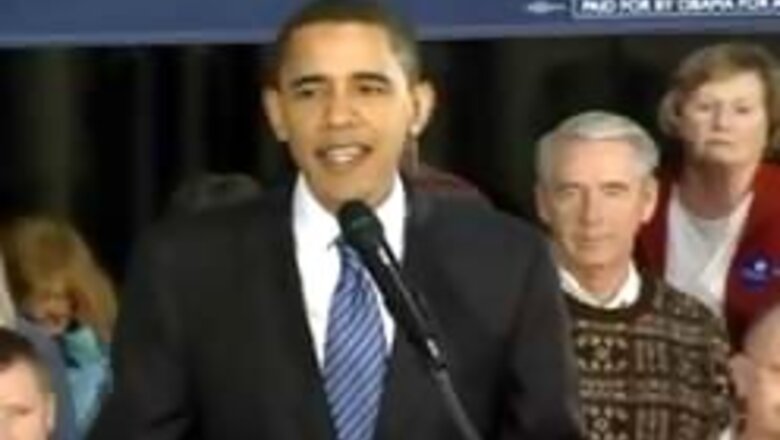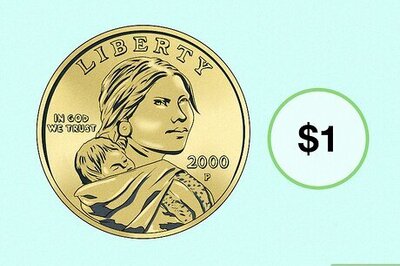
views
Fargo (North Dakota): Democratic presidential candidate Barack Obama waded into controversy on Thursday over his plans to withdraw US combat troops from Iraq, first saying he might "refine" his views but later declaring his stance had remained unchanged for more than a year.
Obama was forced to call reporters back for a second news conference in Fargo, North Dakota, after he initially left open the possibility of revising his 16-month timetable for pulling US combat forces from Iraq.
"Let me be as clear as I can be. I intend to end this war. My first day in office I will bring the joint chiefs of staff in and I will give them a new mission and that is to end this war," Obama told reporters in his second news conference.
But he added: "I would be a poor commander-in-chief if I didn't take facts on the ground into account."
At an earlier news conference, the Illinois senator had said he could "refine" his stance after he visits Iraq.
Obama, an early opponent of the war who made his stance a centrepiece of his Democratic presidential campaign, said he would not support a long-term US presence in Iraq but wanted to ensure any troop withdrawal was orderly and safe.
"I've always said I would listen to commanders on the ground. I've always said the pace of withdrawal would be dictated by the safety and security of our troops and the need to maintain stability," he told reporters on arrival in North Dakota.
"That assessment has not changed, and when I have a chance to meet with some of the commanders on the ground I'm sure I'll have more information and will continue to refine my policies."
After heavy criticism from his Republican presidential opponent John McCain, Obama said he would visit Iraq and Afghanistan later this summer. It will be his second visit to Iraq.
McCain, an Arizona senator, is a staunch advocate of the current U.S. strategy in Iraq and the issue is certain to be central to their November election battle for the White House.
REPUBLICANS POUNCE
Obama said McCain's campaign had "primed the pump" to convince reporters he was going to change his position. McCain's campaign has inundated reporters with e-mails suggesting Obama was prepared to shift his stance.
Republicans quickly pounced on his initial comments.
"There appears to be no issue that Barack Obama is not willing to reverse himself on for the sake of political expedience," said Alex Conant, a Republican National Committee spokesman.
Obama said his plan for withdrawing one or two combat brigades a month from Iraq after he takes office always depended on conditions on the ground.
"I'm going to continue to gather information to find out whether those conditions still hold," he said. "My guiding approach continues to be that we've got to make sure our troops are safe and Iraq is stable."
As Obama spoke, two of his foreign policy advisors told reporters in a conference call the current US strategy in Iraq was allowing the security situation in Afghanistan to worsen and must be changed.
The advisors, Susan Rice and Sarah Seward, said they believed the 16-month time frame for a US troop withdrawal in Iraq was still achievable.
Rice said Obama remained committed to a "responsible, careful redeployment of US forces from Iraq" and to starting it "from the early days of his administration."
"And the best advice, military advice, that he's received has been that a responsible pace is one to two combat brigades a month," she said.
For security reasons, Obama has not announced the date of his Iraq trip. He will be part of a congressional delegation and will not take reporters with him.
"My job is to make sure that the strategic issues that we face ... are all taken into account and dealt with in a way that enhances America's national security interests over the long term," Obama said.



















Comments
0 comment